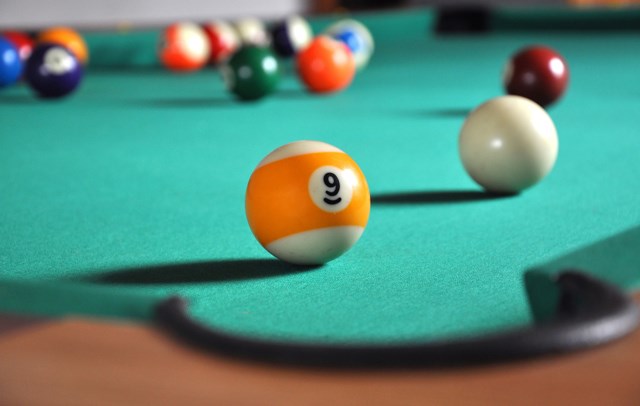Pool or also known in many countries as billiards, is a table sport (same category where ping pong can be placed). Which may seem extremely simple at first glance, but hides a certain complexity or depth in its practice. Well, although only for a game where you have to hit a ball with a stick, there are many techniques to learn to master this game. It even requires a certain level of strategy and intellect to be able to practice it, since mental calculations must be made to hit the ball precisely and achieve what you are looking for.

In this article we do not intend to turn you into a professional pool player, however we do want to serve as an introductory article to this sport. Mentioning those basic concepts about it and its main game modes. Whether your intention is just to get to know this sport and satisfy your curiosity, or because you aspire to something more.
In any case, you should start with something and you have come to the right place for it. Let’s start by knowing the basic elements or characteristics of this sport.
Pool characteristics.
As with any sport, this one has its own characteristics, which distinguish it from others. In this first point, our intention will be to comment on what are those characteristics or elements that distinguish pool from any other table sport:
- The stick or stick. This is a wooden stick approximately 1.70m (meters) long. Which has a fine pointed end and a thicker one, it is the tool or instrument with which the player can touch the white ball and with it make his plays.
- The white ball. This is a ball used to be able to collide or hit the other colored balls on the table (which are distinguished between smooth and striped). It is also the ball that the player must use to be able to put the others in the 6 holes, it is forbidden to hit the number balls directly with the cue.
- Number balls (Smooth and Striped). As already mentioned, these are the spheres with which points are added or the results of the games are defined. There are a total of 15 where from 1 to 7 are smooth (unicolor) and from 9 to 15 are striped (they have a colored stripe in the middle, the rest is white). There is also the 8 ball which is black, it does not belong to any category.
- Table. A table with dimensions of 2.40m long and 1.40m wide. Which have 6 holes, 4 in the corners and two in the middle of the pool table.
Game mode.
Actually this sport offers many ways to be played, however here we will comment on what could be considered as “classic”. The smooth mode against scratches. This pool game mode is explained below:
- It can be played with 2 or 4 players (the latter in pairs). And one of the players must break the pineapple (triangular formation of number balls) by hitting the white ball with his cue.
- In the next turn, it is up to one of the opposing players to try to put any of the colored balls in a hole, when the game starts, the table is free of choice, so the players can choose which ball to put (If smooth or striped).
- In case of pocketing any of the balls belonging to these categories, you must continue the game by pocketing only those of that type, leaving the 8 ball (black) for the end. Your rival will automatically be assigned the other category, so the game becomes a kind of “race” to put all of its kind first and leave 8 for last.
- If one of the players accidentally pockets the 8 ball before pocketing the corresponding category, they automatically lose.
Let’s keep in mind that the players take turns hitting the cue ball, and that the only valid way to validate a number ball in the holes is to hit it with the cue ball. Eh there the grace of the pool and why its complexity, because it may seem simple at first glance, but it is difficult to calculate the angles accurately.
Conclusion.
In itself, pool is a sport that anyone can practice, and that does not require greater physical or mental demands for the player (as other sports can be). However, its mastery does require practice, so it will take hours of practice to master the types of shots and ways of hitting the cue ball. Well, you would be surprised to know how dynamic such a simple action can be, being able to even achieve effects with one blow.
